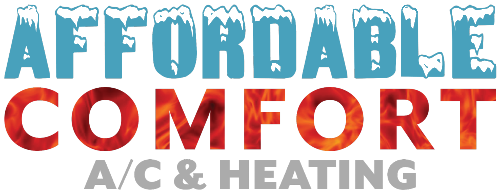Understanding the Risks of HVAC System Overload
The electrical connection is another area that needs regular inspection as parts, especially wiring, may detach or corrode over time.
An HVAC is a hard-working machine. In the summer months, its compressor is constantly operating, doing its best to cool things down. Over time, though, some factors may cause it to stop functioning at its best or stop completely. Let's discuss how a sub-optimal compressor can become a liability and a potential hazard.
Inefficient operation
An HVAC system constantly cycles air, and finer particles like dust and sand can gradually accumulate in its different systems. Regular smoking (cigarettes, cigars, pipes, etc.) also produces a sticky nicotine residue that can adhere to moving parts and slow them down. The prime areas where debris accumulates are the air filter and air ducts.
Externally, the condenser coils are also susceptible to dirt buildup, especially if the surrounding area is poorly cleaned. Dirt, dead leaves, and sand can easily enter the system if left unmaintained. As these parts help dissipate heat for the HVAC, the compressor can overload them if they are not working optimally.
Dirty air ducts and filters restrict air flow, which increases energy use, and puts extra strain on the compressor. Homeowners need to replace the air filters every 60 to 90 days. Ducts and components like the evaporator coils require the help of a professional cleaning service.
Electrical hazards
If an HVAC system is poorly installed, the power draw may prove too much for a particular circuit to handle, leading to regular shorting, power surges, and the entire machine not functioning effectively. Most circuits run on a 15- to 20-amp current, but a power-hungry appliance like an HVAC needs to be attached to a 20- to 40-amp circuit.
The electrical connection is another area that needs regular inspection as parts, especially wiring, may detach or corrode over time. Moreover, exposed or poorly connected wiring can lead to sparking and potential fires. Before attempting to fix live wires, it's a good idea to consult the experts.
Chemical hazards
The refrigerant chemical used by an HVAC is a non-consumable resource. The system doesn't use it up in the cooling process; rather, it is recirculated. But if refrigerant leaks from the system, the compressor may overload itself to maintain the right temperature. This leads to poor HVAC performance and can drastically shorten its lifespan.
If too much is added, then the refrigerant won't be able to change state as easily and effectively cool the air. This is called overcharging and can add extra strain on the compressor as it tries to compensate.
As refrigerant chemicals are hazardous to inhale and handle, you'll need a professional repair service to handle a leak and any top-ups required. The trained professional will know how much is too much, so contact these experts to maintain your HVAC system.
Trust locally-owned and operated Affordable Comfort A/C and Heating for HVAC preventative maintenance and thermostat services. Call 602-574-1205 to schedule a consultation.

